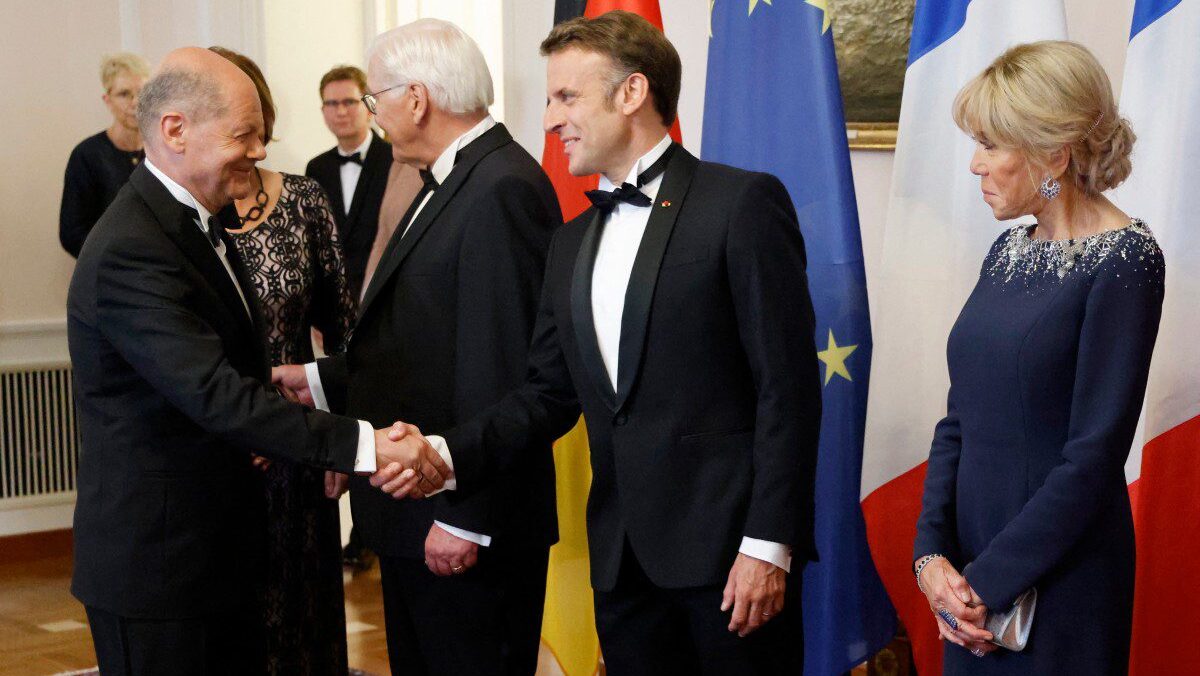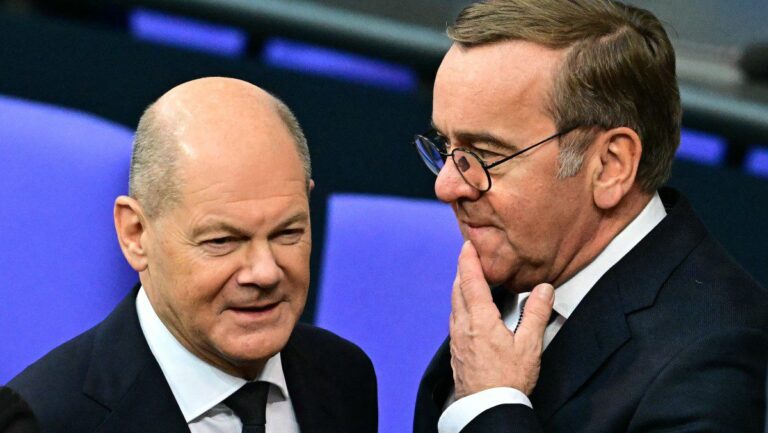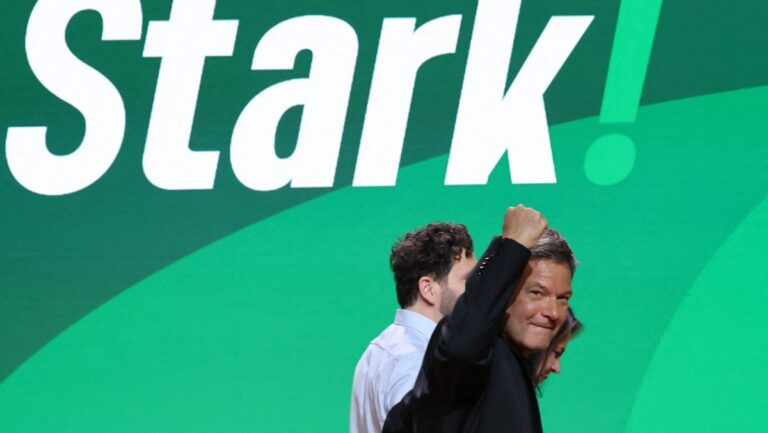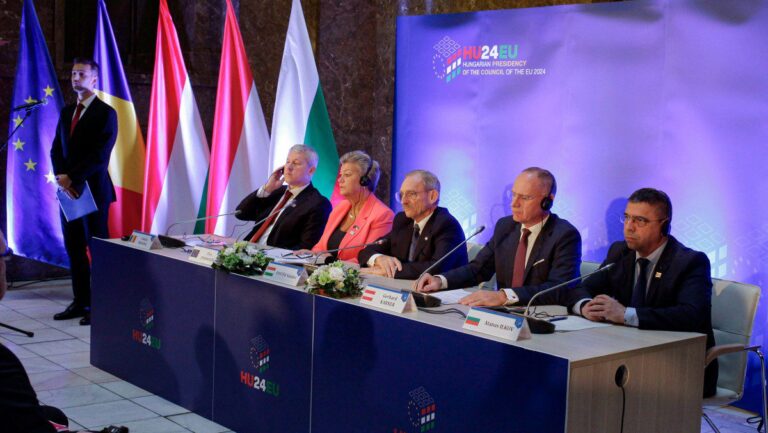Europe faces an “existential threat” and must therefore double its spending, French president Emmanuel Macron has claimed.
Speaking during a state visit to Germany, Macron called for a “massive investment shock” in the EU to meet the bloc’s challenges. However, it remains to be seen whether voters across Europe will be keen on even more public spending. The idea was notably absent from a joint op-ed in the Financial Times by Macron and his German counterpart Olaf Scholz.
In the speech in Dresden, Macron said, “Let’s double our European budget”:
Europe needs a massive investment shock to meet its challenges. … Two times more joint public investment.
This should be done, he continued, either by doubling “the size of the budget, through common borrowing strategies or the instruments that already exist.” Whether this means raising taxes, the French leader did not say.
The speech is part of a three-day state visit to Germany—the first of its kind made by a French leader in 24 years—meant to show unity between the European Union’s leading powers ahead of European Parliament elections in which rightist EU-skeptic parties are expected to make substantial gains.
However, France and Germany disagree on several budget and debt issues. The French president also wants a new EU joint debt, something Germany and other budgetary conservative nations oppose.
Ever since Scholz took power in 2021, he and Macron have publicly disagreed on matters ranging from nuclear energy to defense. However, recently, some compromise has been reached on various fronts, from fiscal reform to changes to power market subsidies.
That unity has found expression in a joint op-ed piece, published on Tuesday by The Financial Times.
Indirectly referring to the coming European elections, after which “we Europeans will start setting out our agenda for the next term in the EU,” the two leaders say it’s clear, “looking back at the challenges over the last five years” ( such as the COVID-19 pandemic, the Russo-Ukrainian and geopolitical shifts) that Europe is “experiencing its Zeitenwende [turning point].”
In what reads as a dire warning, the piece continues to say:
We can’t take for granted the foundations on which we have built our European way of living and our role in the world. Our Europe is mortal, and we must rise to the challenge.
Whilst conflating the notion of Europe as a continent, with its own rich history, and the modern invention that is the European Union, the two say that what what will preserve these foundations is to “strengthen the EU’s sovereignty”— meaning a further centralisation of power in Brussels. Using the word “sovereignty” for the purpose of amassing more centralized EU powers d no doubt strike the continent’s much-maligned nationalists as highly ironic, if not downright hypocritical.
Displaying their utter ignorance as to what everyday Europeans are concerned about, the duo also doubled down on the EU’s green agenda, which has not only driven farmers to massive protest manifestations across the continent, but also increased energy costs and food expenses for citizens.
“Strengthening our global competitiveness and enhancing our resilience while making the Green Deal and the digital transition a success is at the heart of responding to these challenges,” they propose.
As part of Brussels’ Green Deal, which has as its final aim making the entire bloc fully carbon-neutral by 2050, its economy would be decarbonized.
“We will fully decarbonise our energy systems. And we will achieve this in a fully integrated and interconnected market while respecting national choices on the respective energy mix.” As long as not a single atom of carbon is present in such an energy mix, of course.
Critics, some hosted by The European Conservative, say such an all-or-nothing approach would however do the exact opposite, since so-called ‘green’ energy is non-viable for our needs, making the EU non-competitive as the rest of the world continues to use fossil fuels. Europe’s competitiveness is to be part of talks on Tuesday between Macron and German Chancellor Olaf Scholz.





